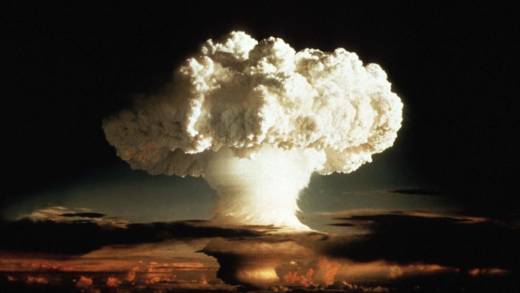With this week’s bellicose boasting about who has the bigger red button on his desk, an alert Thursday from the Centers for Disease Control and Prevention felt more than a bit on the nose.
With the prospect of actual nuclear war breaking out between North Korea and the United States seeming ever more real, the CDC is moving to prepare health professionals and others on what the public health response would be to a nuclear detonation.
The CDC announced it is staging a grand rounds — a teaching session — on the topic. The target audience: doctors, nurses, epidemiologists, pharmacists, veterinarians, certified health education specialists, laboratory scientists, and others. The event will be held Jan. 16.
A spokesperson for the agency said planning for the event has been underway for months — in fact, since CDC officials took part in a “radiation/nuclear incident exercise” led by the Federal Emergency Management Agency last April, Kathy Harben said in an email.
“CDC participants felt it would be a good way to discuss public health preparedness and share resources with states and other partners. State and local partners also have expressed interest in this topic over time,” she said.
